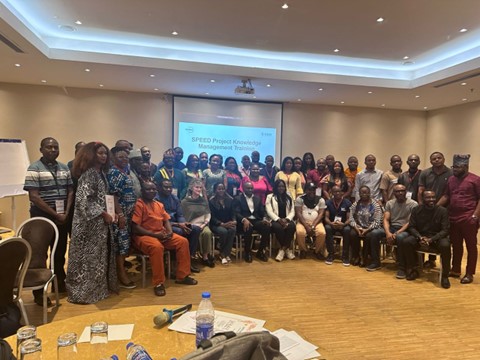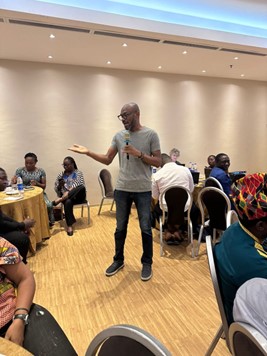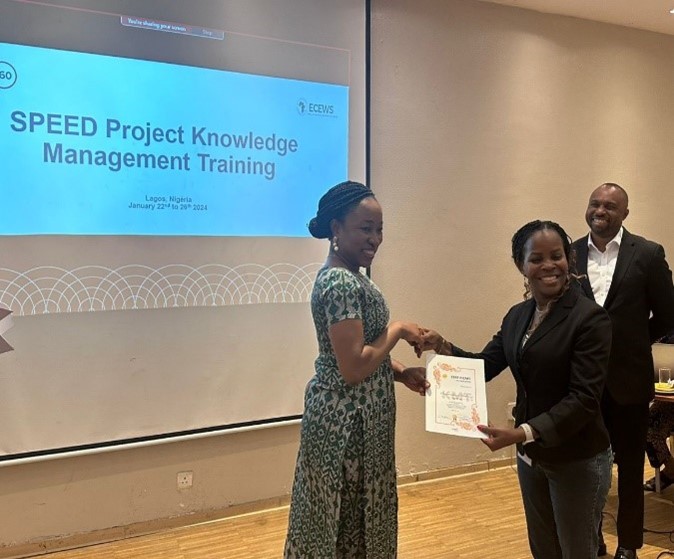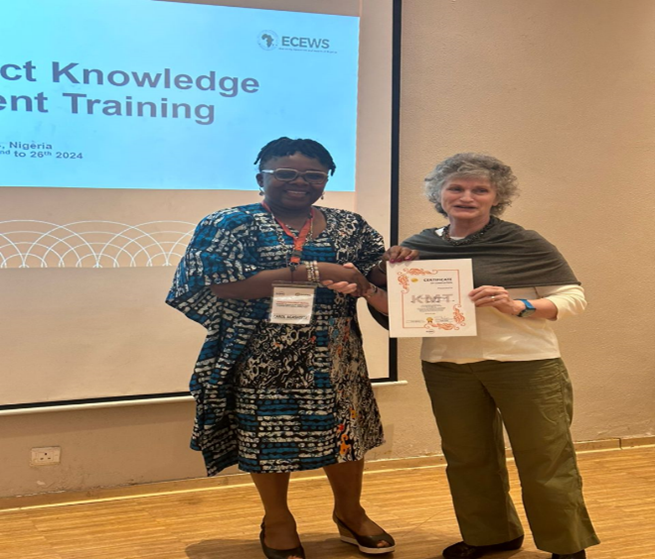FHI 360 Knowledge Management and Abstract Writing Training for SPEED Project
A SPEED SUCCESS STORY
The Sustainable Programs for HIV Epidemic Control and Equitable Service Delivery (SPEED) project, spanning five years in Nigeria, seeks sustainable HIV epidemic control in Delta, Osun, and Ekiti states. FHI 360, a key technical partner, plays an important role in providing Technical Assistance in laboratory services, Strategic Information, and Knowledge Management to support HIV control. This initiative, led by the Excellence Community Education Welfare Scheme (ECEWS), involves a consortium of five partners, including FHI 360.
As an integral component of FHI 360’s technical assistance to the SPEED project, a comprehensive 5-day knowledge management training took place in Lagos from January 22nd to January 26th, 2024.

The training successfully addressed key concepts such as the definition of knowledge management, benefits, types of knowledge, steps in the knowledge management process, challenges in implementation, tools and techniques, leadership’s role, and best practices. The significant progress observed shows the effectiveness of the training in equipping the SPEED Project team with essential skills and knowledge, enhancing their ability to contribute meaningfully to the project’s success and the broader fight against the HIV epidemic in Nigeria.
FHI 360 acknowledges that a robust knowledge management system, coupled with skilled abstract writing, is essential for the SPEED project for showcasing the significance of project activities, promoting continuous learning, and facilitating improvement as such FHI 360 organized the knowledge management training for the consortium partners, employing an interactive approach that blended theoretical knowledge with practical exercises, discussions, application of templates, and real-time case studies.



Facilitators, including key individuals like Deborah Carpenter, Gine Etheredge, Kenisha Jefferson and Joseph Msofe, were drawn from the headquarters, ensuring representation of those actively involved in the project. Participants were drawn from FHI 360, ECEWS, ARFH, Howard University and the Government of Nigeria, bringing a total of 43 participants.


Ultimately, the training has effectively equipped the SPEED Project team with the necessary skills in Knowledge Management and Abstract Writing. The acquired knowledge is anticipated to make a substantial contribution to the successful implementation of the project and the continuous efforts in combating the HIV epidemic in Nigeria through the collective expertise of the team. Additionally, certificates were awarded to all participants.


